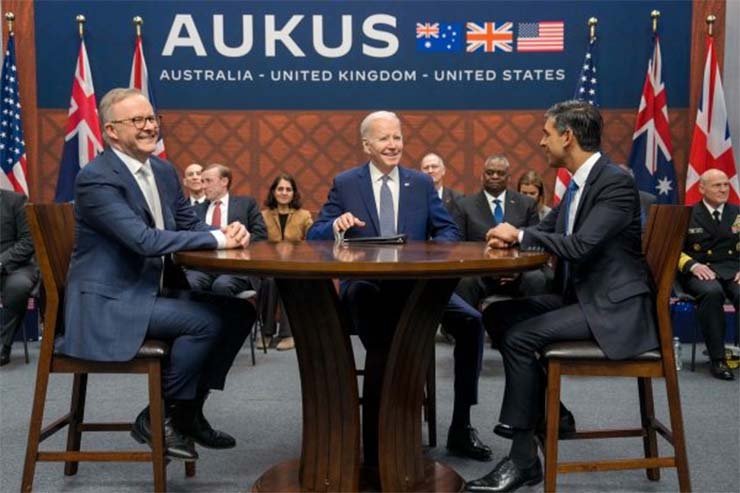
Auckland: While momentum towards New Zealand joining up as an AUKUS Pillar II partner seems building, the country’s new defence minister says any decision is likely a long time away.
The first briefing of the relatively new, conservative government here on AUKUS took place in late February, during a visit by Australian defence officials to Wellington. But Judith Collins, New Zealand’s Minister of Defence said the discussion was a “background briefing only and not intended to address all of the issues of New Zealand joining.
“It is quite early days for Pillar II for the AUKUS partners, let alone anyone else like us or the Canadians,” she said during a February 29 interview. “We have started that engagement, we want to keep this up and understand further the opportunities for New Zealand.”
The meeting followed the January 31 “2+2” Australia and New Zealand Foreign and Defence Ministers’ Meeting (ANZMIN) that included Collins, Australia’s Defence Minister Richard Marles and the respective foreign ministers Winston Peters and Penny Wong.
As a sign of how early discussions still are, the February briefing was just between Australian and New Zealand officials rather than with the other AUKUS partners, the US and UK.
“Certainly the other partners to AUKUS are aware we are talking to the Australians about this and I suspect they will see this as a very positive thing for us to engagement with them,” Collins said. “There is no guarantee we will be signing up to AUKUS Pillar II, we’re not even sure if we will be invited to. But what we are doing is trying to work out if it is in our best interest and what does it mean.”
However, there are concerns that joining a group that is designed to counter Chinese military expansionism in the region — particularly as Pillar One of the agreement sees the US and UK teaming to provide Australia with the capability to operate and build nuclear-powered submarines — is putting New Zealand’s “independent foreign policy” at risk. This is a term commonly referring to New Zealand’s non-alignment with major powers following its exit from the ANZUS Treaty in the 1980s.
Robert Patman, professor of international relations at Otago University said “perceptions matter,” and the popular perception of AUKUS is that it is primarily a nuclear-weapons agreement. He said that both the Pacific Island states and ASEAN remain committed to the non-proliferation of nuclear weapons and are “uncomfortable about New Zealand’s apparent retreat from its diplomatic brand.”
Peters, the foreign minister, has been visiting Pacific Islands in recent months compiling an impressive array of engagements with foreign representatives. But Patman said that Peters’ desire for closer relations with US “may not sit comfortably with a closer alignment with the Pacific Island states, because some if not all do not accept the paradigm that the US-China rivalry will determine the future of the world.”
For her part, Collins rejects that argument entirely: “We do have an independent foreign policy just like most other countries,” she said, “So the term ‘independent foreign policy’ is somewhat misleading and outdated.
“In terms of how other countries view it, I am sure they don’t worry too much about how we view what they do. We are not stupid people — we understand risks and responsibilities, we are aware of that. Anyone who thinks that New Zealand looking after its security concerns is a problem should really value New Zealand taking a serious line on this.”















